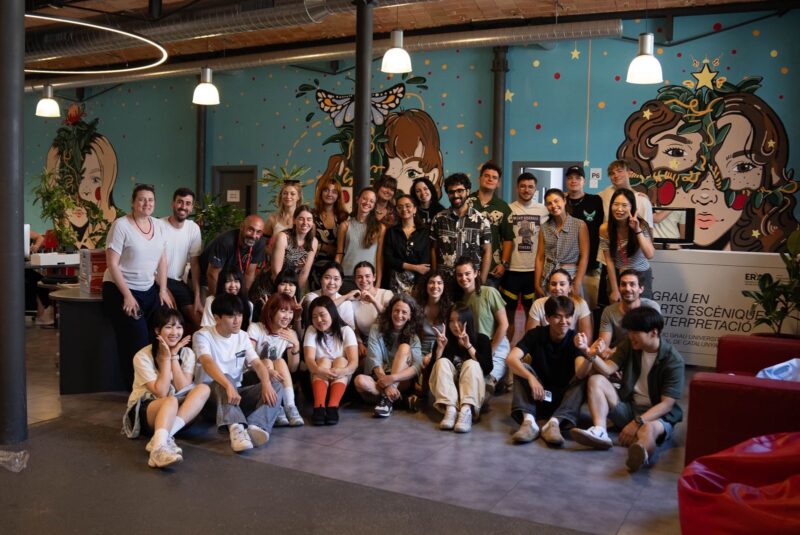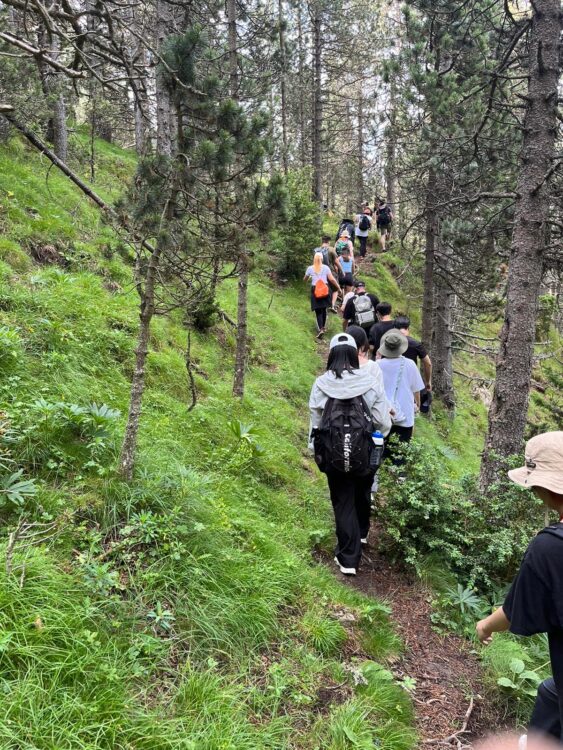
When we set off for Girona, Spain, on our Erasmus+ BIP, none of us really knew what to expect. Sure, we had a theme—Joyful and Caring Technology Futures—but how that would translate into reality was anyone’s guess. Little did we know that this trip would be about so much more than just brainstorming and projects. It turned into an experience of connection, self-discovery, and deep reflection on our relationship with technology and nature.
Arrival in Girona
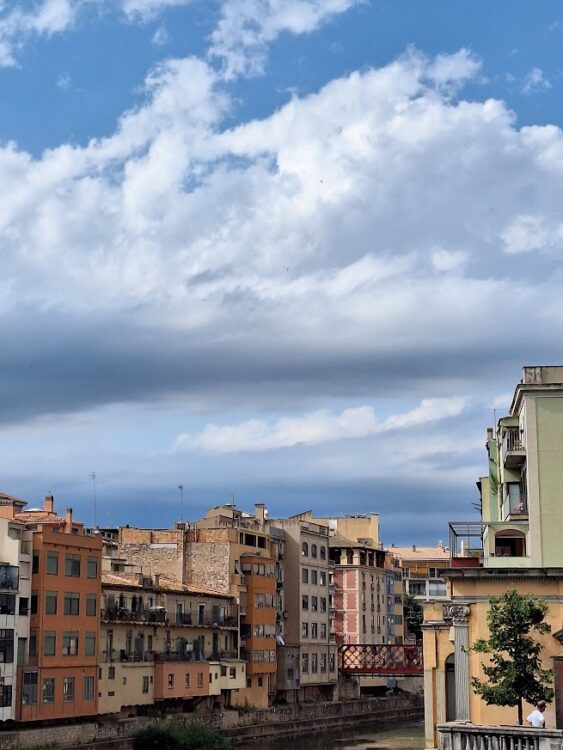
Girona welcomed us with its cobblestone streets and historic charm. It felt like stepping into a postcard, with ancient buildings and narrow alleys that seemed to whisper stories of the past. But we weren’t there just to sightsee. Our first stop was the ERAM building, where the excitement really kicked in.
This was where we met the other participants—students from Hungary, Germany, Spain, Sweden, The Netherlands, Romania, and South Korea. The mix of cultures was amazing. The ice-breakers helped ease any awkwardness, and soon we were all chatting like old friends. We dove straight into discussing our goal: designing technology that isn’t just functional, but also joyful and caring.
Into the Mountains
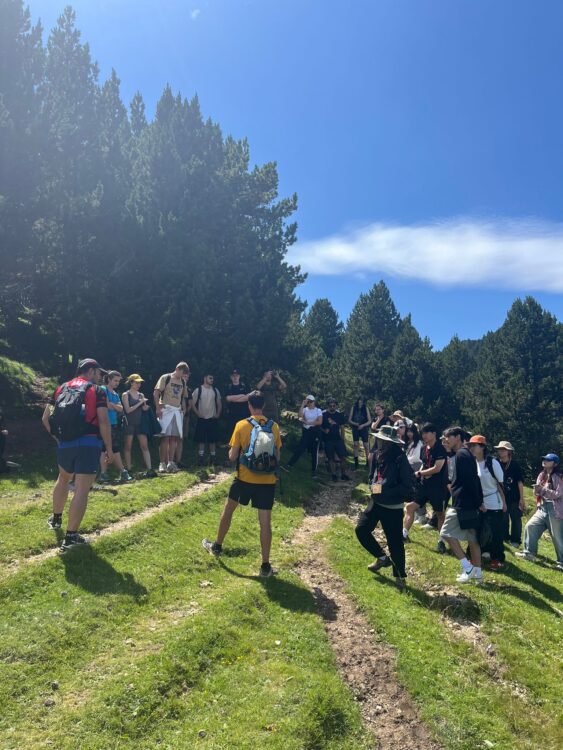
After a day in the city, we took off for the mountains, heading to the Pyrenees (Serra d’Ensija-els Rasos de Peguera). We’ve always loved nature, but this was something else. The mountains were stunning, almost like they were alive with energy. Spending three days there was the perfect way to break away from the usual rush of ideas and really think about what we were trying to create.
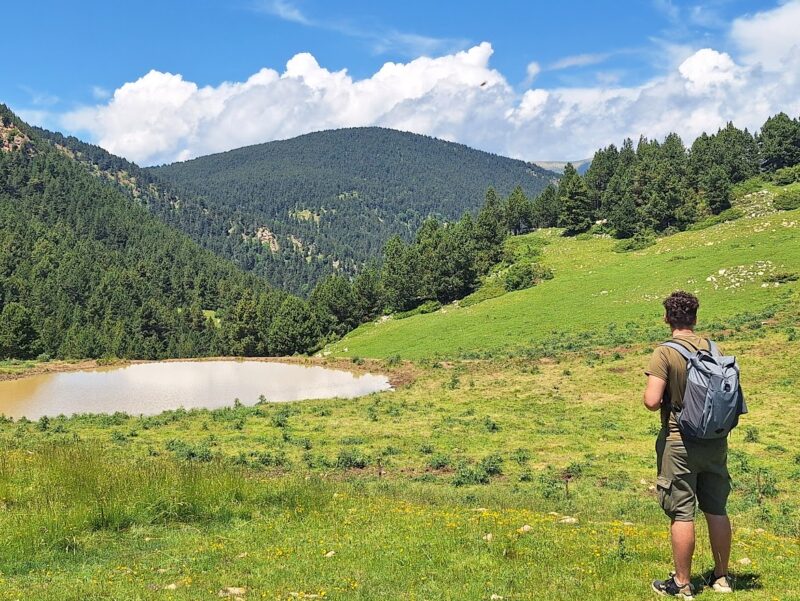
On the second day, we went on a 10-kilometer hike. It was tough, but the views were worth every step. Walking through those landscapes made us realize how disconnected we often are from nature, and it got us thinking about how technology could bring us closer to it rather than pull us further away.
Building Friendships in a Mountain Hut
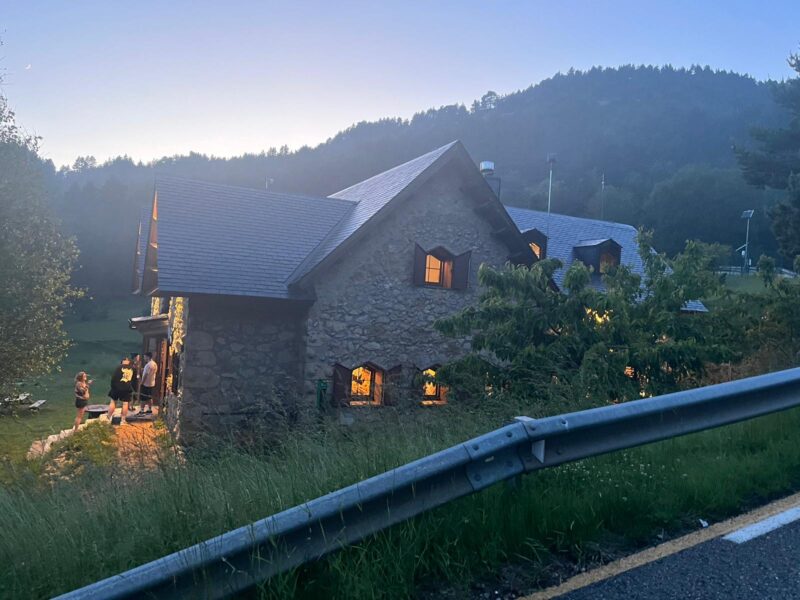
The nights in the mountain hut were something we’ll never forget. Imagine 21 people, from all corners of the world, crammed into one room. It was cozy, to say the least! But instead of feeling uncomfortable, it actually made us closer. We had no choice but to talk, share stories, and bond. And that’s exactly what we did.
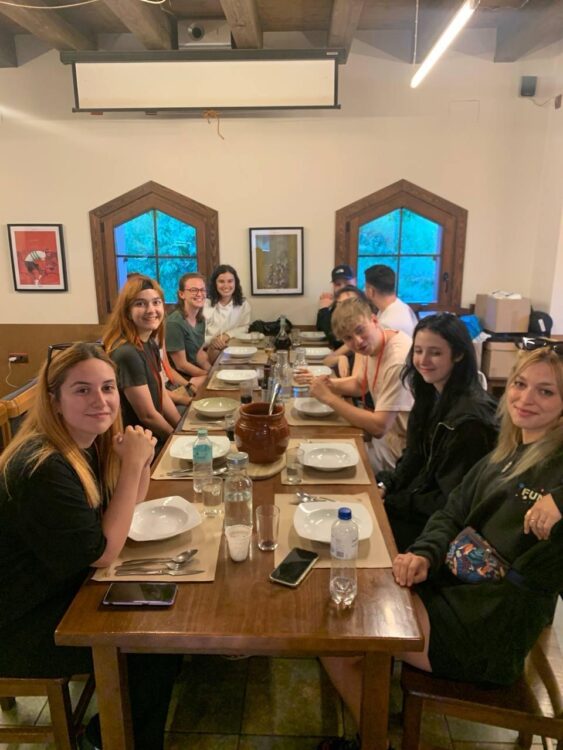
We talked late into the night about everything—our cultures, our dreams, our fears. We laughed a lot, too, which helped break down any barriers between us. It was in those late-night conversations that our ideas really started to take shape. There’s something about being surrounded by nature and good company that sparks creativity in ways a classroom never could.
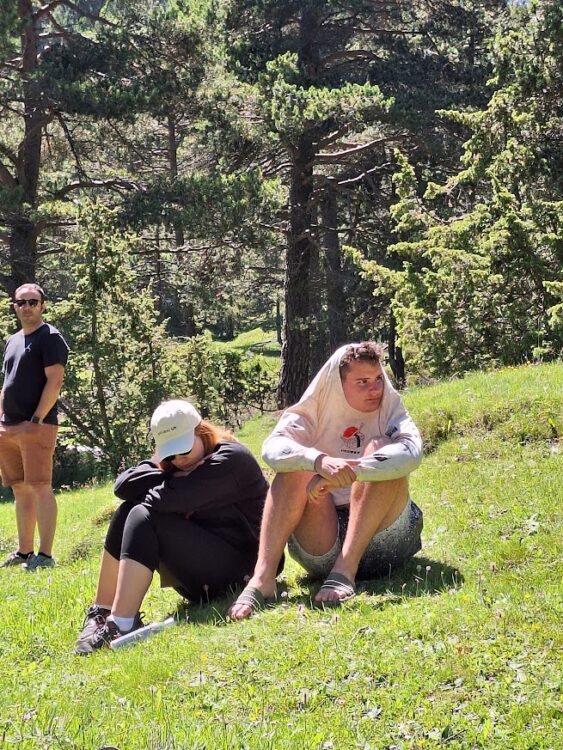
A Thought-Provoking Question
Before leaving the mountains, we gathered for a final discussion. It was here that Vukašin posed a question that would linger in our minds long after we left: “If we are part of nature, then how are we destroying it? Who is to say that this isn’t the natural course of things? And who are we to think that we are above everything and everyone to try and save nature? If everything we do is inherently a part of nature?”
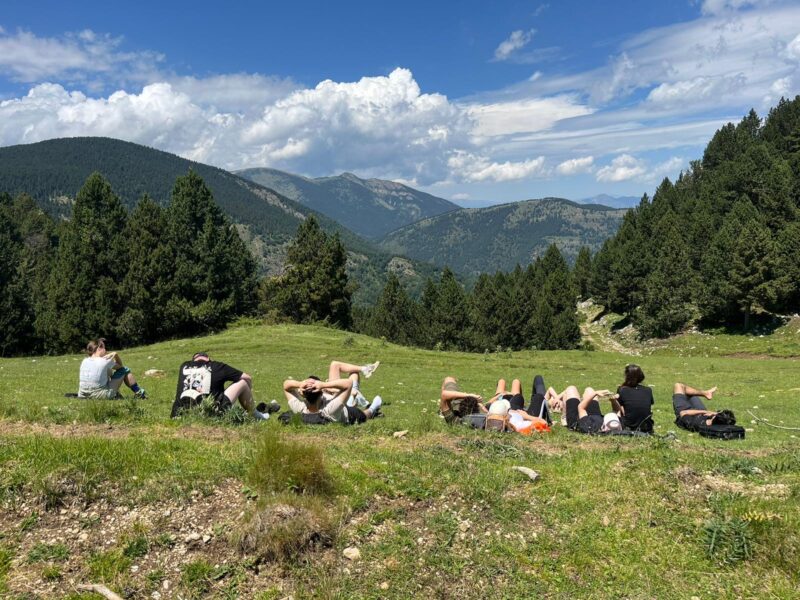
This question flipped our perspective. It made us think about our role not as masters of the environment, but as participants in it. Maybe our job isn’t to dominate or “fix” nature with technology, but to find a way to live alongside it, to create technology that benefits not just humans but the whole ecosystem.
Designing Joyful and Caring Technologies
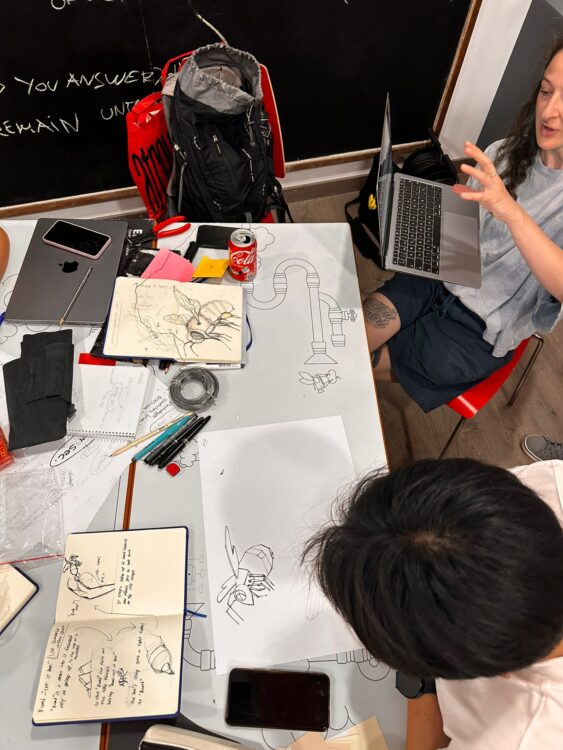
With our heads full of new ideas, we headed back to Girona to start turning our thoughts into real projects. Divided into groups, we brainstormed ways to design technology that truly reflects joy and care. The ideas were incredibly diverse. One group came up with a phone app that would help us connect more deeply with our surroundings by providing insights about the local environment. Another group designed a ball that could collect and store personal thoughts, offering a moment of reflection in a fast-paced world. There was even a concept for insect-inspired devices that encourage us to slow down and appreciate the natural world around us.
These weren’t just theoretical projects. They were the result of days spent in nature, of conversations that went beyond the superficial, and of a deep desire to create something meaningful.
Exploring Girona and Saying Goodbye
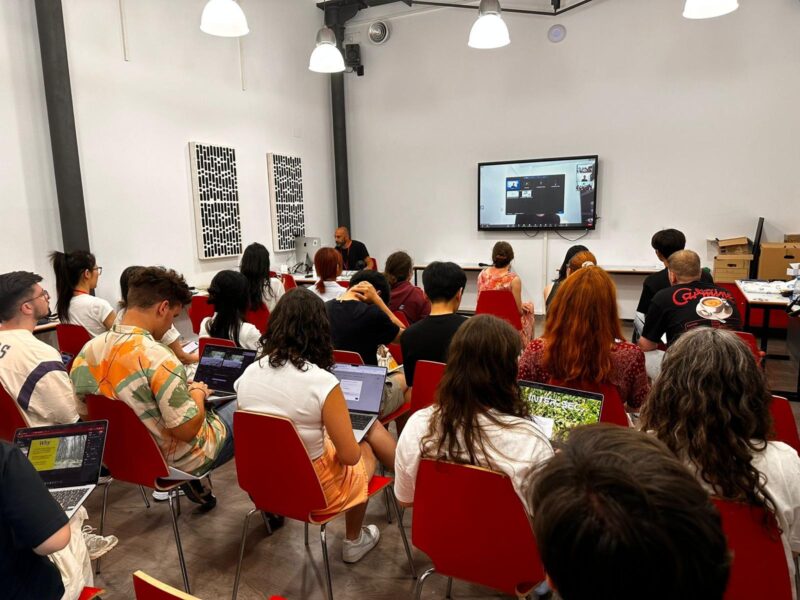
On our last day, we presented our ideas, and it was clear that this experience had been more than just an academic exercise. We had formed real connections, both with each other and with the ideas we were developing. The presentations were great, but what really stood out was the sense that we had all grown in ways we hadn’t expected.
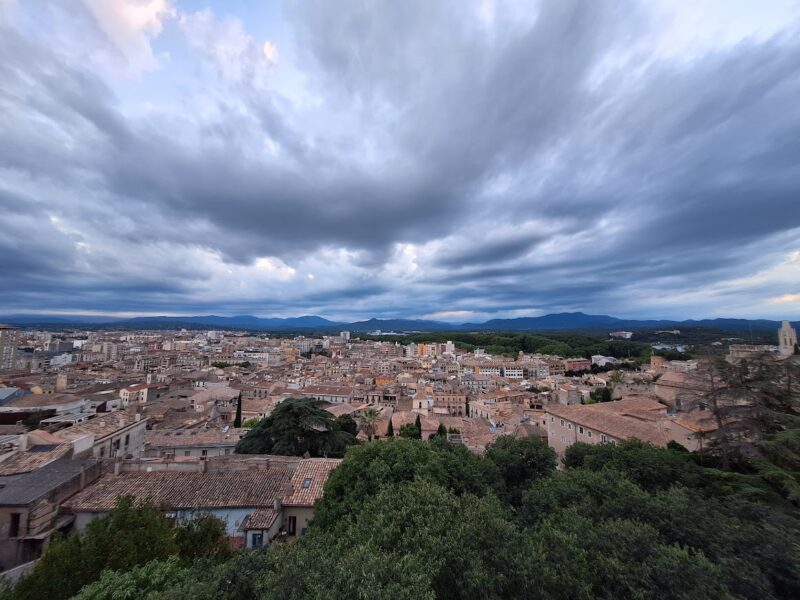
After the presentations, we spent the rest of the day wandering around Girona, soaking up the last moments together. Saying goodbye was tough. We’d only known each other for a short time, but the intensity of the experience made it feel like we’d been friends for years. As we hugged and promised to keep in touch, we couldn’t help but feel a mix of sadness and excitement—sadness that our time together was ending, but excitement about what we might create in the future, whether together or on our own.
Final Thoughts
Looking back, the Erasmus+ experience in Girona was more than just a project or a trip; it was a journey into what it means to be human in a world where technology is everywhere. It challenged us to think about how we can design tools that don’t just serve us, but also respect and enhance the rest of nature. And, perhaps most importantly, it showed us the power of connection—between people, between cultures, and between ourselves and the world around us.
We’re leaving Girona with new friends, new ideas, and a new perspective on how we want to contribute to the future. And we can’t wait to see where these ideas—and these friendships—take us next.
